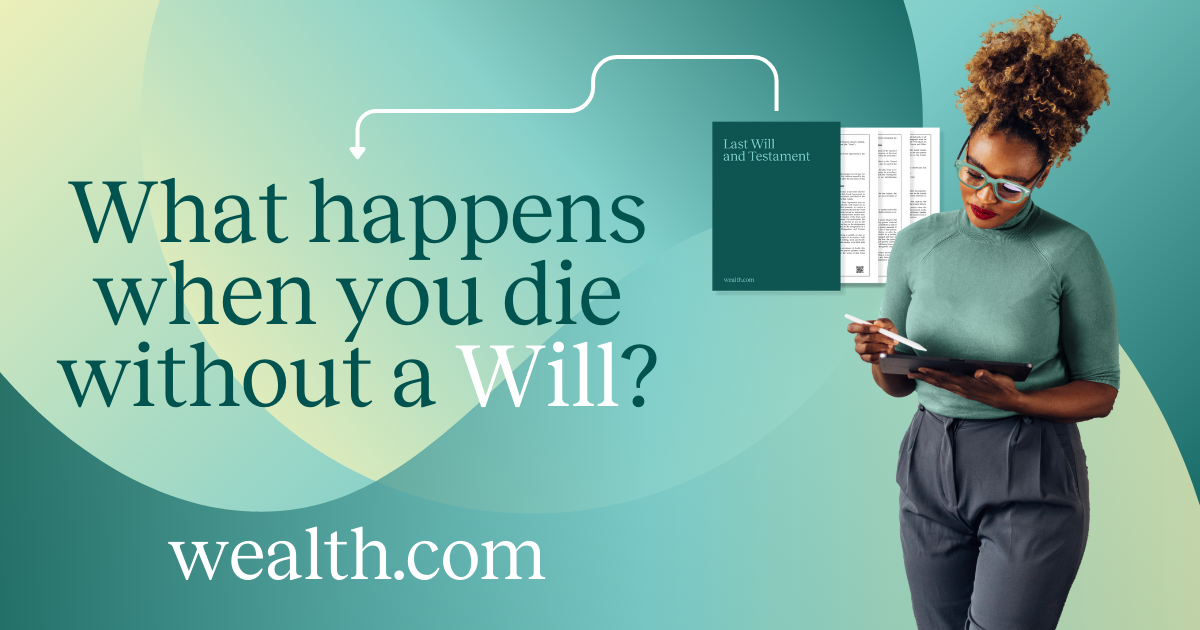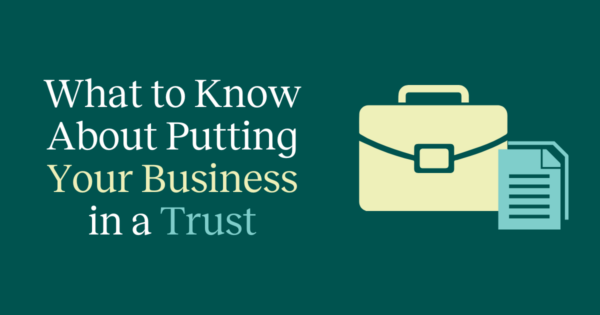TL/DR: What happens when you die without a Will is that you have little to no control over how your affairs are settled. This article breaks down how dying without a Will leaves the people you care about in a lurch.
_________________________________________________________________
You might think you won’t care what happens to your stuff after you die. It’s just stuff, right? And you’re gone anyway.
But if you die without a Will* or other estate-planning documents in place, your loved ones might never see the money you worked so hard to save for their future.
Who Decides What Happens to My Estate?
Dying without a Will—or, as it’s legally known, dying “intestate”—takes all the decisions about who gets your money and property out of your hands and puts them in the state’s hands: the probate judge ultimately signs off on all decisions made about your estate.
To help the court, the court will appoint the administrator (or executor) of your estate—typically your spouse or one or more of your adult children. If no one volunteers, a public trustee will be appointed. The administrator will play the most significant role in ensuring all your assets are found, who gets what exactly, and who will take care of your children or pets. Importantly, that administrator will be entitled to reasonable payment from your estate, in addition to any share of your assets that this person might otherwise receive.
The administrator has a lot of power. Having a Will allows you to tell the court who you trust to have this role rather than letting the court decide.
How Is Division of My Estate Decided?
Working with your administrator, the probate court will decide how your property and money should be distributed. While the court wants to follow what you intended (if that can be proven), the court has to follow state intestate succession laws. These laws, and how they handle things like domestic partnerships and marital property, can vary depending upon where you live. They are based on the average person’s final wishes – and all 50 states disagree on what those average wishes might be – at the time the law was made, which might be decades old.
These laws likely do not address your family situation, with more modern concerns and complexities. They also do not allow you to define your legacy by including beneficiaries outside your bloodline, such as friends or charities. If your estate might be paying taxes, those laws do not attempt to minimize those taxes so that more of your assets will end up with your loves ones.
Probate takes time. This is especially true if you do not leave strong enough proof (like a Will) of what you wanted because it opens the door to disagreements among your family members. When family members disagree, the litigation can sometimes take over a decade to be resolved, and during this time, your assets will largely be tied up.
So, Who Gets What?
In general, if you are married with children and die without a Will, in some states your whole estate will go to your spouse and in others it will be divided among your spouse and children.
If you are single and don’t have kids, next up in the order of priority are your parents, if still living. Then come siblings, nieces and nephews, aunts and uncles, and more distant relatives. If the court can’t locate any blood relatives, all of your possessions could pass to the state.
If you have a blended family and children from a previous marriage, those children may not receive any of your assets once your spouse passes away. If you live in a state where by default everything goes to your spouse, then your spouse’s heirs will receive your assets at your spouse’s death. Thus, if you want to make sure your spouse can’t override your wishes, you need not only a Will, but a Will that creates a Trust to secure your wishes.
Anyone not related to you with whom you had intended to share in your estate—stepchildren, a best friend’s daughter, or a charity—won’t receive a penny if you have not named them in a legal document.
That may also apply to someone you’ve been in a long-term relationship with but haven’t married, depending on your state. In those states that recognize domestic partnerships or common-law marriages, unmarried partners may be eligible for inheritance similar to a spouse in probate courts. However, in all other states, unmarried couples are technically not relatives, so your partner may not be able to inherit any of your estate or continue using your shared home if you own that home.
What Happens to My Kids?
Being the parent of a minor child is one of the most important reasons to have a Will. In that document, you can appoint a guardian for children who are minor or have special needs. It is just as essential that you have a Will if you feel strongly about who should take your children as who should not take your children.
The court will strongly take your choice into consideration. Without indicating your choice, the court will evaluate your family members to see who would be most appropriate to serve as guardian.. The court is then left to consider competing arguments among your family members, and the court may have chosen differently if you had a say through your Will.
This information should make clear all the legal complexities and complications created when you die without a Will. Each of these challenges requires your loved ones to wonder when and if they’ll be able to access the resources you’ve accumulated. Putting an estate plan in place today can give your family peace of mind that they’ll be taken care of even after you die.
* This Article refers to a Will, but also includes a trust-based estate plan. In any event, you should have a Will even if you have a revocable Trust because you will likely own assets at your death that you could not transfer into your Trust (i.e., you will have an estate, even if you fully funded your Trust). That kind of Will simply “forwards” or “pours over” your estate to your Trust and is commonly called a “pour-over” Will.



